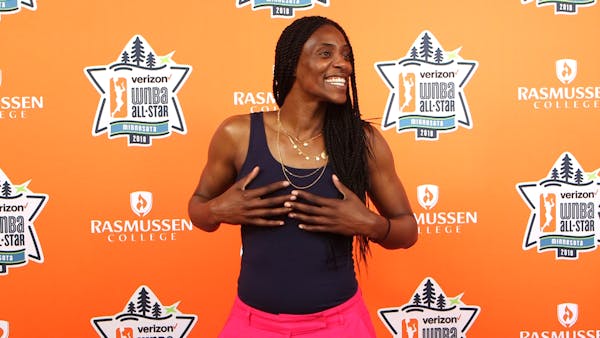The Twin Cities have played host to an impressive array of national sporting events.
The Ryder Cup and the majors at Hazeltine National demonstrated the passion of local golf fans and the lushness of our courses.
The baseball All-Star Game highlighted the beauty of a Minneapolis summer and Target Field. The X-Games affirmed that the Cities can be cool.
The latest Super Bowl broadcast the grandiosity of U.S. Bank Stadium and provided a reminder that if you visit Minnesota in February you may lose a toe.
None of the many world-class events to invade our ZIP codes have been as important, symbolically, as Saturday's WNBA All-Star Game.
The other events made the rich richer and theoretically increased the Cities' tourism or prestige. The WNBA All-Star Game may not generate as much cash but will provide the latest reminder that women's sports matter, and should matter more to more of us.
This game will celebrate great basketball and underappreciated athletes. It will serve as a societal prism, a reminder that our country doesn't treat those who are not white males as well as it should.
This isn't a criticism of white males. Some of my best friends are white males. Some of them are even well-spoken.
Our country has a history of discriminating against women, people of color and those who lead what are awkwardly and arrogantly referred to as "alternative lifetyles.''
I'm hopeful that sport can provide a forum in which pure meritocracy thrives. These women are the best in the world at what they do.
There was greatness all over the court during the workouts on Friday, from Diana Taurasi to Candace Parker to the four Lynx players. Quality of play around the league has never been higher, and the ratings are rising dramatically, yet WNBA players receive less than 25 percent of league revenues. NBA players make 50 percent of league revenues.
As a member of management, Lynx coach and General Manager Cheryl Reeve doesn't touch the salary issue, but she thinks that the rise of the WNBA will fuel change. She noted that when Maya Moore attended a WNBA Finals game in 2001, "it had a major impact on her life,'' and Moore on Friday agreed.
Asked why this game is important, Reeve said: "We think that when you get eyes on women playing professional sports, what it means to young girls. Whether they're wanting to be a player, a coach, whether they see Clare [Duwelius] as an [assistant] general manager, or a sales team worker, you see that there is a path in sports.
"My favorite part of this is that there are many people who come to our games and connect with us who will be at the All-Star Game to get away from their current struggles, whatever it is that they might be going through. They look to us for that release.
"Then there is the big social picture of women in sports, in business, in politics, and the way that we are advancing.''
We have watched the Lynx forge a dynasty, and create a bond with their fans that seems more personal than in other sports. We have watched them bravely address societal problems, and play together selflessly.
In a state that constantly whines about a lack of championships, the Lynx have produced four in seven years while conducting themselves with class.
The Lynx rank among the best of our sports ambassadors, and their play and popularity helped bring another big-time event to the Cities.
"This is very appropriate because of our community and the support and excitement and energy that our fans have brought year after year as we've been able to bring greatness that we've been able to bring,'' Moore said. "To cap it all off and celebrate it this way is really fitting.''
Should you care about the Lynx, the WNBA and this All-Star Game? Only if you care about what sports can do, and what our society should be.
Jim Souhan's podcast can be heard at MNSPN.com. On Twitter: @SouhanStrib. • jsouhan@startribune.com

Souhan: Why Tiger Woods should keep swinging
Souhan: Scheffler wins Masters again, shows what makes him special
Morikawa falters in final round at Masters

Keeping up with the Joneses who helped design Augusta National's classic back nine


